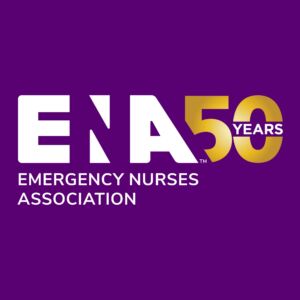By Linda Crerar, Director CoE-HSEM
In 1969, I attended Shoreline Community College in Seattle, working on my Associate’s degree and intending to go into a health care profession. I had an opportunity to join a volunteer group at Harborview Medical Center in their Emergency Room, providing social work and crisis mental health support to patients in the evenings when hospital staff was not available.
I had no idea what I would be walking into my first evening shift when I began my training, and three years later, I reluctantly left Harborview to finish my Behavioral Science Degree in another city.
 For three years, I volunteered three (3) nights a week after work and school to support Harborview’s health care and nursing staff. Everything I learned during that “apprenticeship” gave me a life-long commitment to working and supporting our health care professionals.
For three years, I volunteered three (3) nights a week after work and school to support Harborview’s health care and nursing staff. Everything I learned during that “apprenticeship” gave me a life-long commitment to working and supporting our health care professionals.
I knew early on that I was not cut out to be a nurse, but I have had many friends over the years who are a part of that honored profession.
Even though I did not go into the nursing profession, I am a member of the Emergency Nurses Association (ENA), a professional organization with over 40,000 members. Its mission is to advance excellence in emergency nursing and be the premier organization for the emergency nursing community worldwide. I wanted to show my gratitude for our medical professionals’ work on the front lines of COVID today. Let us share the education and training opportunities in our state’s Community and Technical Colleges and Universities to pursue health care careers.
Nurses have long endured a stereotyped image born from a hybrid of Florence Nightingale stories. In the film “In Case of Emergency” by Carolyn Jones, she examines the vital role emergency nurses play in the U.S. health care system. The film sets forth the truth about medical professions and their day-to-day struggling being on the frontline. Such struggles include from behavior health to opioid crisis, victims of gun violence, plus a constant stream of uninsured patients fearful of our health care system because they cannot afford to be sick or injured. And then the pandemic hit and the mounting tragedy for those on the front lines who deal the amounting loss of American lives.
Hospitals are at capacity and lacking in critical PPE gear — and are overstressed and under-supported our healthcare system and its workers already are. Even before the pandemic, nurses experienced incongruities in our healthcare system. “We put Band-Aids on a lot of big issues,” said Michelle Lyon, an R.N. in Lexington, Kentucky, comments in the film.
“In 1970, two visionary women set out to bring emergency nurses together to speak as a united voice for our profession. Although they were initially unaware of each other, Anita Door in New York and Judith Kelleher in California established similar organizations to ensure emergency nurses received the education need to support this newly recognized specialty.
A short time later, later they joined forces to form what is now ENA,” said Jeff Solheim, Immediate Past President.
ENA has been serving in communities across the country now for over 50 years. “Nurses have been ranked as the most trusted and ethical professionals for 18 consecutive years, and they are often regarded as possessing superpower when caring for the patients and communicates we service,” noted Ryan Oglesby, ENA Board Member.
Our Emergency Departments continue to face challenges caused by the COVID-19 pandemic, so a significant influx of patients from any natural disaster or mass casualty-type event would undoubtedly put additional strain on emergency care. ENA encourages nurses and health care professionals to be always prepared for other events, including civil unrest and protests occurring within communities. ENA advocates for patient safety, develops industry-leading practice standards and guidelines and guides emergency healthcare public policy. ENA members have expertise in triage, patient care, disaster preparedness, and all aspects of emergency care.
Additional information is available at www.ena.org.

Allied Health Center of Excellence: Washington State Centers of Excellence. The Center provides information on health care careers and serves as a resource hub for the Healthcare Industry.


